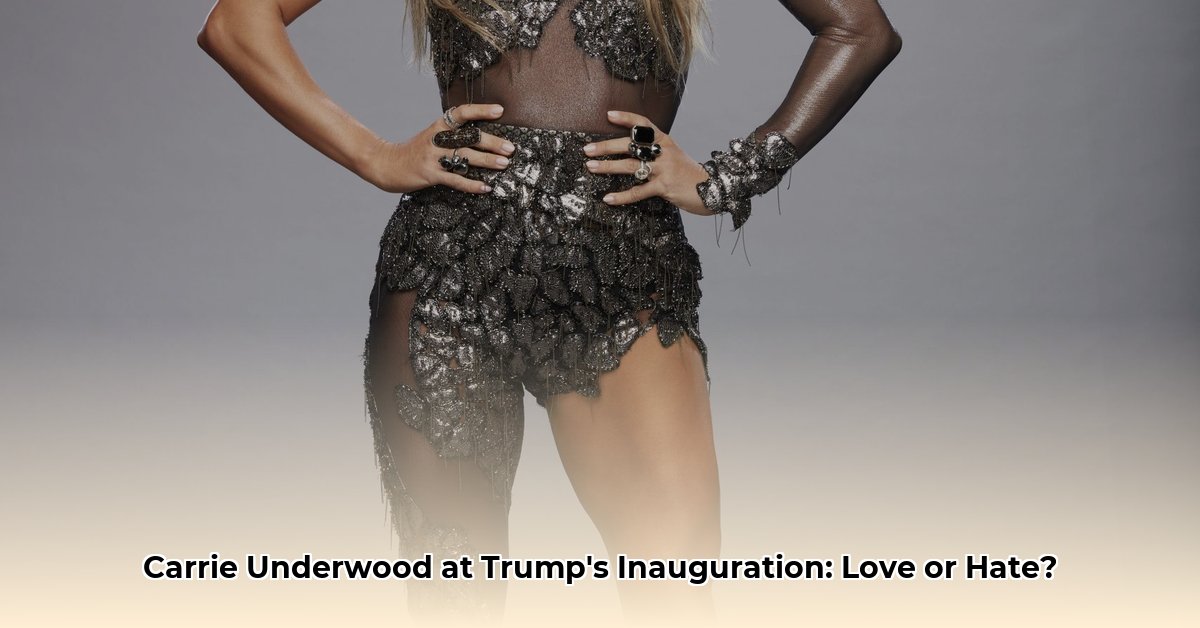The internet is a breeding ground for misinformation, and the rumor surrounding Carrie Underwood’s supposed performance at a Trump inauguration is a prime example. This article separates fact from fiction, exploring the origins of the rumor, the potential reasons for its spread, and the importance of verifying information online.
The Myth of the Performance
The rumor that Carrie Underwood performed at one of Donald Trump’s presidential inaugurations has persisted online, sparking discussions and debates. However, this rumor is demonstrably false. Underwood did not perform at either of Trump’s inaugurations (2017 or the hypothetical 2021 inauguration had he been re-elected). There is no video footage, no photographic evidence, and no official documentation listing her as a performer.
This misinformation highlights the rapid spread of false narratives in the digital age, especially when involving celebrities and political events. It underscores the importance of fact-checking and critical thinking when evaluating online content.
Who Did Perform at the 2017 Inauguration?
While Carrie Underwood was absent, several other artists did participate in the 2017 inauguration festivities. These included:
- The Mormon Tabernacle Choir: A frequent presence at presidential inaugurations, their performance was in line with their historical involvement in such events.
- The Rockettes: Their participation generated its own share of controversy, with some dancers expressing reservations about performing for Trump.
- Jackie Evancho: The young singer performed the national anthem, a traditional element of inaugural ceremonies.
The presence of these performers underscores the contrast between verifiable facts and the persistent misinformation surrounding Underwood’s alleged participation.
Why the Confusion? Exploring the Rumor’s Origins
The precise origin of the Underwood rumor remains unclear. Some theories suggest:
- Mistaken Identity: Perhaps some confused Underwood with another performer or misremembered an entirely separate event.
- Projection of Beliefs: Individuals who assumed Underwood held certain political views may have been more inclined to believe and spread a rumor that aligned with those perceived views.
- Wishful Thinking (or Fear): Some may have hoped (or feared) that Underwood would perform, leading their desires or anxieties to manifest as a perceived reality.
It’s also possible the rumor stemmed from a misunderstanding or a deliberately fabricated piece of information that gained traction online. The incident emphasizes the need for caution and skepticism when encountering information online.
A Hypothetical Scenario: Imagining the Reaction
If Underwood had performed at the 2017 inauguration, it likely would have provoked strong reactions, given the polarized political climate.
Some fans might have felt betrayed, interpreting her participation as an endorsement of Trump’s policies. Others might have defended her artistic freedom, arguing that her performance should not be viewed as a political statement. Social media likely would have been ablaze with passionate arguments from both sides.
This hypothetical scenario, while ultimately irrelevant to the factual record, illustrates the complexities of celebrity involvement in political events and the often-conflicting expectations of their fan base. It also allows for consideration of the public discourse surrounding art and artist in a politicized society.
The Importance of Media Literacy
The Underwood rumor serves as a valuable lesson in media literacy. In today’s digital landscape, it is crucial to:
- Verify Information: Don’t accept everything at face value. Cross-reference information with reputable sources.
- Question Sources: Consider the source’s credibility and potential biases.
- Be Wary of Social Media: Social media can be an echo chamber for misinformation. Be critical of what you see and share.
By practicing these principles, individuals can be more discerning consumers of information and contribute to a more informed public discourse. Ongoing research in fields like social psychology and communications continues to explore how and why misinformation spreads. These studies suggest our own biases and the phenomenon of “echo chambers” play significant roles. It’s likely our understanding of these complex issues will continue to evolve with further research.
Conclusion
The story of Carrie Underwood’s non-existent Trump inauguration performance is more than just a curious online anecdote. It’s a cautionary tale about the power of misinformation and the importance of critical thinking in the digital age. It also reminds us that even seemingly innocuous online rumors can reveal deeper truths about our relationship with celebrity, politics, and the information we consume.






